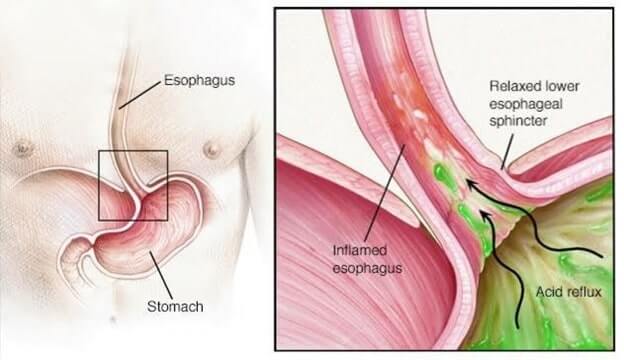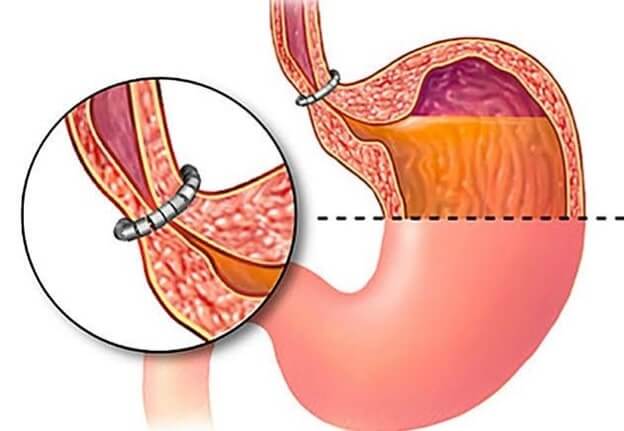Nursing Assignment Help With GERD - UrgentHomework
Introduction: GERD means gastro-esophageal reflux disease. Gastro-esophageal refers to esophagus and stomach where reflux means backward flow so GERD defines backward flow of stomach content into esophagus. The disease is actually a disorder which generally affects lower esophageal sphincter, which is the connecting link between stomach and esophagus. In normal digestion process the food from mouth passes in the esophagus the lower esophageal sphincter allows it to pass into stomach and closes just after it to prevent the backward flow of the food and gastric acid into esophagus again. But in case of GERD the lower esophageal sphincter may be weak or functions inappropriately so that, it allows the stomach content into the esophagus again.
Due to GERD, heart burn and acid reflux is quite common in many people and even in pregnant women. Now a days the modern lifestyle and unhealthy diet may be a reason of the disease where some need medications and some require surgery also.
Symptoms: The symptoms may include:
- Heart burn.
- Pain in chest.
- Nausea and vomiting.
- Sensation of lump in throat.
- Difficulty in swallowing.

Diagnosis:
- Upperendoscopy: A thin and flexible tube with light and camera on it’s top which is called as endoscope is inserted into the throat for the inspection of stomach and esophagus. The process is also used to collect the sample tissue to detect any abnormalities.
- Ambulatoryacidprobetest: The test is performed to check the timing of acid reflux and how long it will continue.
- X-ray of upperdigestivesystem: The process is executed to check the narrowing of esophagus which may obstruct the process of swallowing.
Treatment: Doctors may recommend the following prescribed medications or surgery which may as follows:
- Antacids: Antacids can make quick response to acidity or heart burn or acid flux but these can’t heal the inflamed esophagus which is damaged by gastric acid. Where the excess use of antacids results side effects such as kidney problems and diarrhea also.
- Medications: Some prescribed medications can give longer relief and responsible for decreasing from stomach for a particular time interval where some medications are used to block acid production from stomach which seeks time to heal the esophageal tissues.
- Surgery: The surgery includes the wrapping of top of the stomach to make tight the muscle and to prevent the acid reflux and the whole process is done through laparoscopic process.

Nursing Topics
- Registered Nurses Standards For Practice
- Reflection on Registered Nurse Standards for Practice
- Ambulatory care Nursing Homework Assignments Help
- Australian Healthcare System assignment help
- Clinical Judgment and Decision Making in Nursing
- Critical Thinking In Nursing Homework Assignments Help
- Families in Sickness and Health assignment answers
- Healthcare Management assignment help
- Spiritual Needs Assessment answers
- Therapeutic Nursing Homework Assignments Help
- Anxiety Disorders
- Arrhythmia
- Arthroplasty
- Autism
- Zika Virus
- Glaucoma
- Gallbladder and Biliary disease
- GERD
- GOUT
- Colorectal cancer
- Hepatitis B
- Hepatitis C
- Heart failure
- Hodgkin’s disease
- HPV and cervical cancer
- Hypertension
- Hypogonadism
- Immunization
- Infertility
- Inflammatory bowel disease
- Insulin Therapy
- Influenza
⯈ Child Nursing Help
- Benefits of pet therapy in children on the autism disorder spectrum
- The use of cough and cold medicines in very young children
- Improving asthma management in schools
- Does obesity in children cause risks for influenza complications?
- Management of pain in pediatric nursing
- Children's health insurance: a right or a privilege?
⯈ Adult Nursing Help
- Effects of abdominal massage in critically ill patients
- Do whole grains in an adult's diet prevent cardiovascular diseases?
- Mirror therapy for brain-injured or stroke patients with partial paralysis
- The role of self-care management in sickle cell adult patients
- The role of nurses in weight loss programs for adults
- Cardiovascular risk scores in relation to age and gender
⯈ Elderly Care Nursing Help
- Ways to identify an abused elderly patient
- Clinical trials in older patients
- Change in health care for the elderly in your country
- Measures to take when the elderly refuse to eat
- Alcohol use among elderly patients in nursing homes
⯈ Women’s Health Nursing Help
- Acne prevention and treatment in women
- Increased risk factors for osteoporosis in women
- Factors that alter breast milk content
- Ways to teach patients about menopause management options
⯈ Pain Management Nursing Help
- Emerging ethical issues in pain management
- Influence of patient’s race and gender on pain management decisions
- Effects of cold therapy (a non-pharmacological method) for pain management
- Effective end-of-life care interventions
⯈Primary Health Care Nursing
- How well are nurses prepared for primary health care in your country?
- Primary health care: comparing public health nursing models in different countries
- Patient and family engagement in primary care

